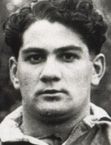Related Research Articles

The Australia national rugby union team, nicknamed the Wallabies, is the representative national team in the sport of rugby union for the nation of Australia. The team first played at Sydney in 1899, winning their first test match against the touring British Isles team.

Rugby Australia, known as the Australian Rugby Union until 2017, is the governing body of rugby union in Australia. It was officially constituted in 1949 and is a member of World Rugby, the sport's international governing body. Rugby Australia has eight member unions, representing each state and territory. It also manages Australia's national rugby union teams, including the Wallabies and the Wallaroos.

Sydney Football Club, commonly known as Sydney FC, is an Australian professional soccer club based in Sydney, New South Wales. It competes in the country's premier competition, the A-League, under licence from Football Federation Australia. The club has won five A-League Championships, four Premierships, one FFA Cup and won the Oceanian Champions League prior to Australia moving into the Asian Football Confederation.
John Norman Warren, MBE, OAM was an Australian soccer player, coach, administrator, writer and broadcaster. He was known as Captain Socceroo for his passionate work to promote the game in Australia. The award for the best player in the A-League is named the Johnny Warren Medal in his honour.

Sir Frank P. Lowy, is an Australian-Israeli businessman of Jewish Slovakian-Hungarian origins and the former long-time Chairman of Westfield Corporation, a global shopping centre company with US$29.3 billion of assets under management in the United States, United Kingdom and Europe. In June 2018 Westfield Corporation was acquired by French company Unibail-Rodamco. He is a former Chairman of Scentre Group, the owner and manager of Westfield-branded shopping centres in Australia and New Zealand.

Wendell Jermaine Sailor is an Australian former professional rugby footballer who represented his country in both rugby league and rugby union – a dual code international.

Rugby union is a football code within Australia with a history dating back to 1864. Although traditionally most popular in Australia's rugby football strongholds of New South Wales, Queensland and the ACT, it is played throughout the nation.

Sir Nicholas Michael Shehadie, was a Lord Mayor of Sydney (1973–1975) and national representative rugby union captain, who made thirty career test appearances for Australia between 1947 and 1958. He was President of the Australia Rugby Union from 1980 to 1987; in that role he pushed for and succeeded in persuading the International Rugby Board to launch the Rugby World Cup. He is an inductee into both the Australian Rugby Union Hall of Fame and the IRB Hall of Fame.
Roy Masters AM is an Australian sports journalist and former rugby league football coach. He is a sports columnist for the Sydney Morning Herald. He was a school teacher with an interest in team psychology who enjoyed some success as a schoolboy coach before embarking on a professional coaching career in the NSWRFL Premiership.

Viking Park is an 7,000 capacity multi-sport stadium located in the Tuggeranong Valley suburb Wanniassa, Canberra, Australia. It has a rectangular playing surface which is used primarily to host rugby union matches but additionally has hosted rugby league, Association football and baseball. It is home to the Tuggeranong Vikings and all matches of the ACTRU Premier Division finals, the Canberra Vikings who compete in the National Rugby Championship and the Tuggeranong Vikings Baseball Club. Viking Park is also regularly utilised by ACT-based Super Rugby club The Brumbies, who use the venue for training and who used to play home matches in the Australian Provincial Championship there.

Lote Daulako Tuqiri is a Fijian-born Australian-raised former professional dual-code rugby footballer who last played for the South Sydney Rabbitohs in the NRL. He represented Australia in both rugby league and rugby union, and Fiji in rugby league. He usually played as a winger in both codes. Tuqiri first rose to prominence as a professional rugby league footballer for the Brisbane Broncos and Queensland Maroons, as well as the Fiji and Australia national sides. He was therefore a high-profile signing for rugby union in 2002, winning 67 caps for Australia and being a part of their 2003 and 2007 World Cup squads. He played rugby union for the Waratahs in the Super 14 and Leicester Tigers in England in season 2009–10. Tuqiri's contract with the Australian Rugby Union was terminated on 1 July 2009. No immediate reason was given, and Tuqiri returned to rugby league in 2010, playing for the Wests Tigers of the NRL. In September 2013, he signed a short-term contract with Irish rugby union giants, Leinster to play in the Pro12 in a three-month deal. Just 6 weeks out from the 2014 NRL season, Tuqiri signed with his third NRL club, the South Sydney Rabbitohs on a one-year deal.

David Gallop is an Australian sports administrator, lawyer and the chief executive of the Football Federation Australia. He previously served as the Chief Executive Officer of the National Rugby League between February 2002 and June 2012. He was also the Secretary of the Rugby League International Federation from its inception in 1998 up until his resignation on 5 June 2012.

Benjamin "Ben" Buckley is an Australian businessman, former Australian Rules Footballer and current chairman of the North Melbourne Football Club in the Australian Football League. He is the former chief executive officer of Football Federation Australia.

The Melbourne Rebels is an Australian professional rugby union team based in Melbourne. They made their debut in SANZAR's Super Rugby tournament in 2011. They were the first privately owned professional rugby union team in Australia, until 2017 when shares in the franchise were returned to the Victorian Rugby Union. The club shares its name with a former Australian Rugby Championship team, but is unrelated. The team plays home matches at AAMI Park.

Frank FarinaOAM is an Australian football (soccer) coach and former player who played as a forward.

The Canberra Vikings, formerly the Canberra Kookaburras, is an Australian rugby union football team that competes in the National Rugby Championship (NRC). The team is based at Viking Park in Wanniassa, and is backed by the Tuggeranong Vikings Group as the licence holder, with the Brumbies and University of Canberra as non-financial partners.
Rugby union has a long history in Australia, with the first club being formed in 1863 at Sydney University. Today it holds tier one status with World Rugby and has over 82,000 players nationwide.
Lewis Matthew "Matt" Carroll AM is an Australia sports administrator. In March 2017, he was appointed Chief Executive Officer of the Australian Olympic Committee.
Remo Nogarotto is an Australian businessman and football executive. Nogarotto is Executive Chairman for Corporate Advisory for the C|T Group and is a board member of Football Federation Australia.
Chris Nikou is the current chairman of Football Federation Australia and an Australian lawyer.
References
- ↑ "FFA chasing new chief exec as well as coach". The Sydney Morning Herald . 29 August 2006.
- 1 2 3 4 5 "John O'Neill AO to be recognised as an artist of administration in the Hall of Fame". Sport Australia Hall of Fame. 8 October 2015. Retrieved 27 September 2020.
- ↑ {http://www.footballaustralia.com.au/default.aspx?s=insideffa_newsfeatures_newsitem&id=10436}
- ↑ "Tasman rivals friends again". Archived from the original on 2 November 2005. Retrieved 9 December 2017.
- ↑ "Archived copy". Archived from the original on 2 November 2005. Retrieved 29 August 2006.CS1 maint: archived copy as title (link)
- ↑ Archived 25 August 2006 at the Wayback Machine
- ↑ "Archived copy". Archived from the original on 18 February 2006. Retrieved 29 August 2006.CS1 maint: archived copy as title (link)
- ↑ "World Cup hailed as best ever". BBC Sport. 24 November 2003.
- ↑ "John O'Neill Named Sport Executive of the Year". Australian Rugby Union. 13 March 2003. Archived from the original on 6 June 2011.
- ↑ Manning, Rollo (19 December 2005). "The view from Australia – wrap of 2005". Scrum.com. Archived from the original on 16 October 2006.
- ↑ Weidler, Danny (14 December 2003). "Why 'Mr World Cup' decided to walk". The Sydney Morning Herald . Archived from the original on 11 September 2006.
- ↑ Archived 6 June 2011 at the Wayback Machine
- ↑ "O'Neill admonishes attacks on ARU". Australian Broadcasting Corporation. 1 June 2004. Archived from the original on 2 July 2004.
- ↑ "Archived copy". Archived from the original on 22 August 2006. Retrieved 29 August 2006.CS1 maint: archived copy as title (link)
- ↑ "Farina's contract safe in cup campaign - O'Neill". The Sydney Morning Herald . 6 February 2005.
- ↑ "Socceroos' hopes dashed in final minutes". Australian Broadcasting Corporation. 27 June 2006.
- ↑
- ↑
- 1 2 "John O'Neill resigns as FFA boss". News.com.au. 29 August 2006. Archived from the original on 1 September 2006.
- ↑ Webster, Andrew (14 April 2017). "Former ARU boss John O'Neill reveals he could see 'Armageddon' coming but board did nothing about it". The Sydney Morning Herald. Retrieved 14 April 2017.
- ↑ "John O'neill resigns as ARU Managing Director and CEO". www.rugby.com.au. Retrieved 14 April 2017.
- ↑ "Echo chairman bows to Packer pressure". The Sydney Morning Herald . 8 June 2012.
| Preceded by Gary Flowers | Australian Rugby Union CEO 2007–2013 | Succeeded by Bill Pulver |
| Preceded by Bob Fordham | Australian Rugby Union CEO 1995–2003 | Succeeded by Matt Carroll |